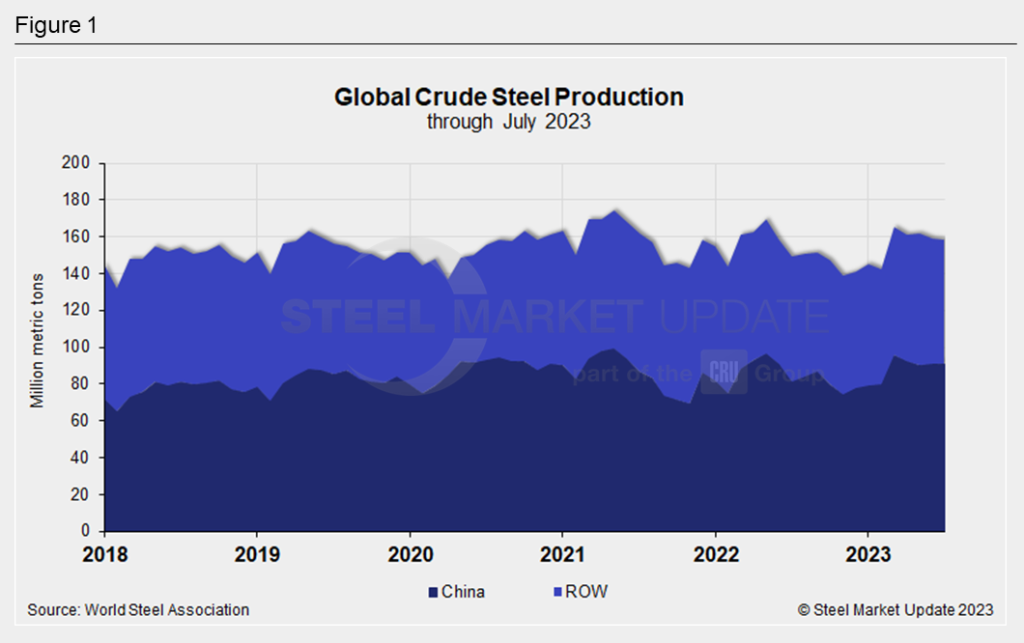Analysis
August 22, 2023
Global Steel Output Rises in July: worldsteel
Written by Ethan Bernard
Global steel production increased 6.6% year over year (YoY) in July to 158.5 million metric tons (Mt), according to the latest report from the World Steel Association (worldsteel).

China produced 90.8 million metric tons last month, up 11.5% from July 2022, according to worldsteel. The US produced 6.9 million metric tons, rising 0.5% in the same comparison.
Regions seeing a YoY increase in July included: Africa, +26.1% to 1.4 million metric tons; Asia and Oceania, +9.1% to 119.9 million metric tons; Other Europe, +5.1% to 3.6 million metric tons; and Russia and Other CIS + Ukraine, +9.3% to 7.4 million metric tons.
Regions that saw a decrease in July 2023 vs. July 2022 included: the EU, -7.1% to 10.3 million metric tons; Middle East, -3.9% to 3.1 million metric tons; North America, -1.2% to 9.4 million metric tons; and South America, -8.4% to 3.4 million metric tons.
The 63 countries reporting to worldsteel represent around 85% of global steel production, the Brussels-based association said.






